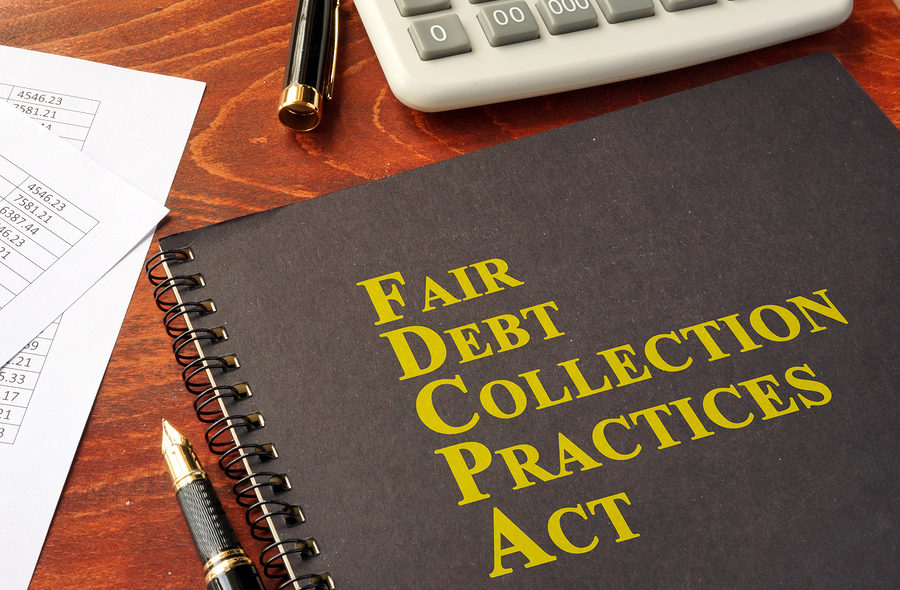When someone is in debt, he or she may feel trapped with nowhere to turn. According to Northwestern Mutual’s 2018 Planning & Progress Study, the average American consumer has $38,000 in debt, not including their mortgage.
As soon as creditors or debt collectors begin contacting the consumer regarding what he or she owes, the person may feel like he or she has no choice but to do whatever is being demanded of him or her. However, most consumers do not realize that they do, in fact, have rights when it comes to debt they owe. It helps to know what these rights are when debt collectors or creditors come calling.
These rights are located within the Fair Debt Collection Practices Act (FDCPA), a federal law which outlines what third-party creditors may do when collecting on a debt and what they are prohibited from doing. This law is meant to restrict the abusive, threatening or deceptive collection practices.
No Sharing Information on Debt with Consumer’s Employer
Prior to the FDCPA being enacted, debt collectors were using any tactics possible to collect on a debt. One of these techniques was to reach out to the consumer’s employer, providing him or her information on what the employee owes. However, the FDCPA prohibits third-party debt collectors from providing any information to third parties, including family members, as well as employers. The only information they can request is the contact information of the individual. No information regarding the debt may be shared.
Harassment Prohibited
Debt collectors are very persistent. Many times, they will call multiple times during the day and week, but if this communication is bordering on harassment, they may be violating the FDCPA. Consumers have the power to first tell the collector how they wish to be contacted. Also, consumers can tell the collector that the communication is becoming harassment and can request that it stop completely.
This brings the question of what exactly qualifies as harassment? Harassment is communication that includes overreaching, continuous phone calls, threatening communication, using profanity, hiding the identity of the caller when communicating and any other type of aggressive behavior used to force the consumer into paying on the debt.
Time of Day for Communication
Under the FDCPA, third-party debt collectors cannot contact the consumer before the hours of 8 a.m. and after 9 p.m. If the collector does call the person before or after those times, they can be reported for violating the FDCPA.
Truthful Communication
Debt collectors are required to only provide truthful information regarding the consumer’s debt. This includes the amount owed, whether the statute of limitations has run on this particular debt, and any consequences associated with not paying the debt. One of the more common lies told by debt collectors has to do with their power to serve the consumer with a subpoena or whether they have the right to sue the consumer for payment on the debt. If the consumer asks the debt collector a question, the collector must provide a truthful answer or decline to answer.
Right to Receive Details
Additionally, consumers have the right to request specific details regarding the debt, including a written notification with details surrounding the debt. This notice should include the total amount owed, who the original creditor is, and any other information. The consumer also has the right to specifically ask for the debt collector’s name. Once receiving this information, then the consumer can review it to ensure that it is, in fact, accurate. If anything is not accurate, then the consumer has the right to dispute the debt.
Please click here to read more.
If you have questions on this topic or are in financial crisis and considering filing for bankruptcy, contact an experienced Miami bankruptcy attorney who can advise you of all of your options. As an experienced CPA as well as a proven bankruptcy lawyer, Timothy Kingcade knows how to help clients take full advantage of the bankruptcy laws to protect their assets and get successful results. Since 1996 Kingcade Garcia McMaken has been helping people from all walks of life build a better tomorrow. Our attorneys’ help thousands of people every year take advantage of their rights under bankruptcy protection to restart, rebuild and recover. The day you hire our firm, we will contact your creditors to stop the harassment. You can also find useful consumer information on the Kingcade Garcia McMaken website at www.miamibankruptcy.com.

